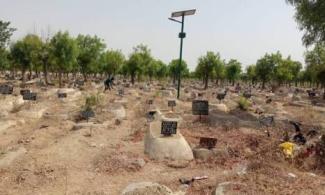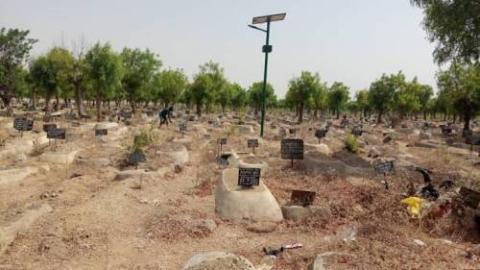
Latest statistics from the National Health Management Information System indicates that out-patient visits dropped from four million to about two million and antenatal visits from 1.3 million to 655,000.
There are no conclusions yet with regard to ‘strange’ deaths in Kano State, the Minister for Health, Dr Osagie Ehanire, has said.
Ehanire disclosed this on Thursday in Abuja at the daily briefing of the Presidential Task Force (PTF) on COVID-19.
He said investigations were still ongoing.
SaharaReporters reports that Kano State witnessed yet-to-be-explained deaths in the recent past. No fewer than 150 people were feared dead in the state, prompting investigations to determine whether the deaths were related to COVID-19.

According to the minister, unexplained deaths did not only occur in Kano but in eight states of the federation.
He gave the assurance that the ministry would continue to investigate them.
The minister said Nigeria had been able to learn from ongoing interactions with Chinese personnel, based on their own experiences in dealing with the COVID-19 pandemic in China.
He encouraged those who claimed to have solutions to the COVID-19 pandemic to go ahead with researches on them. According to him, the National Agency for Food and Drug Administration and Control (NAFDAC) is there for all researchers to approach.
“Nobody needs to give you permission to approach NAFDAC,” he stated.
Ehanire said that the ministry was ensuring the continued delivery of routine services in all hospitals in the country.
“Latest statistics from the National Health Management Information System indicates that out-patient visits dropped from four million to about two million and antenatal visits from 1.3 million to 655,000.
“Others include skilled birth attendance, from 158,374 to less than 99,000, while immunisation services reduced by about half. All these failings have yet undetermined consequences, which the easing of the lockdown should hopefully address.
“However, the suspected downside of easing restrictions has to be balanced off by citizens, with collective determination by all of us, not only to comply with protective and prophylactic advisories but to encourage relatives, friends neighbours and customers to do same,” he said.[story_link align="left"]80210[/story_link]
The minister said that the use of facial covers such as masks in places, where social distancing may be difficult, should be emphasised and supported through the distribution of masks to the population, as an act of goodwill.
“Face masks should, in fact, become commonplace, and I look forward to seeing that cooks, stewards and food vendors, for example, wear masks or lose their customers.
“I wish to enjoin workplaces to institute such requirements and ensure that all workers are masked and knowledgeable about COVID-19, and by extension, share it with their families and relations,” he said.
The Minister of Information and Culture, Alhaji Lai Mohammed, while responding to a question on the provision of insurance for journalists, said it was the responsibility of employers to provide insurance for their frontline workers.
Mohammed said that journalists were frontline workers in curbing the coronavirus outbreak in Nigeria.
The minister said that there was a need for media owners to provide insurance for their staff. “I am also responsible for providing insurance for my journalists who are also frontline workers,” he said.